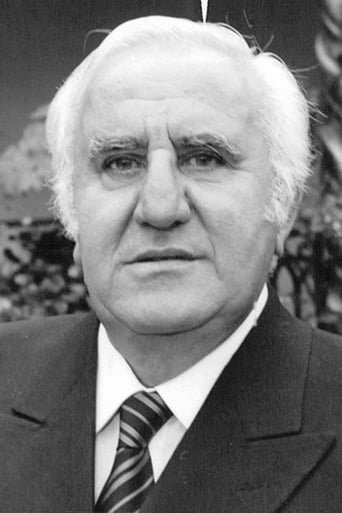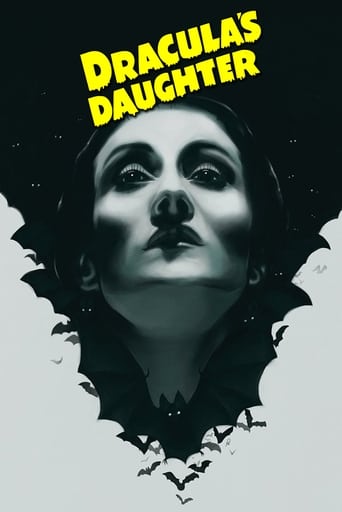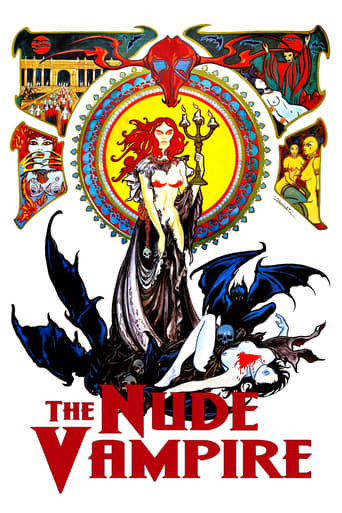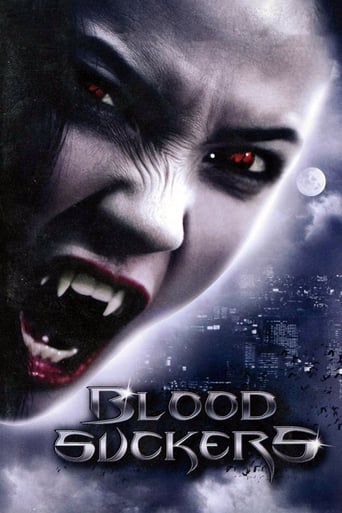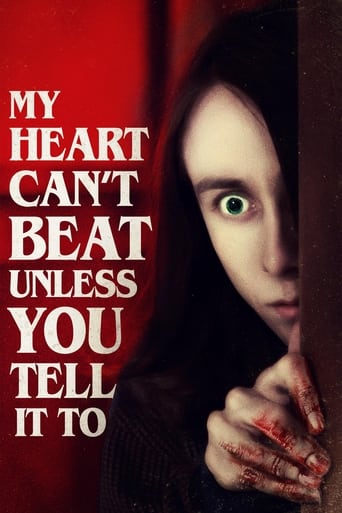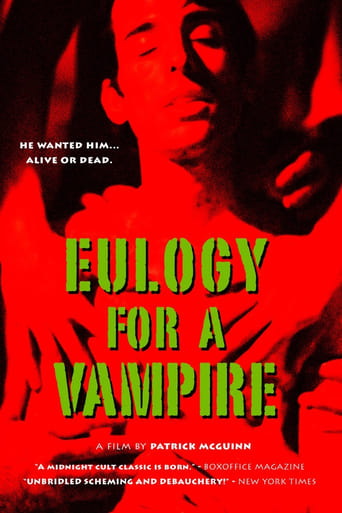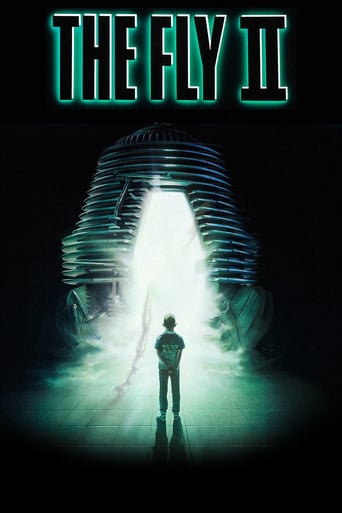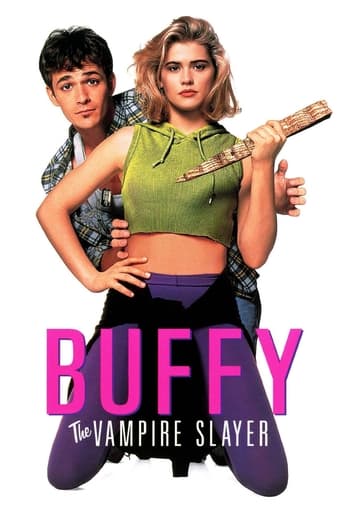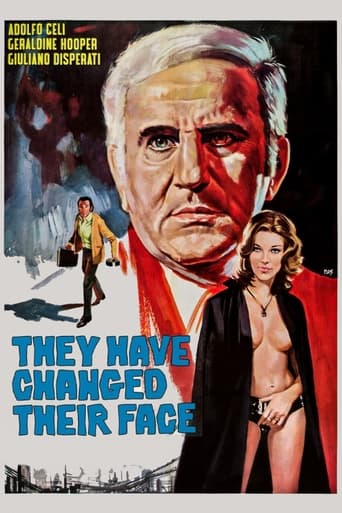
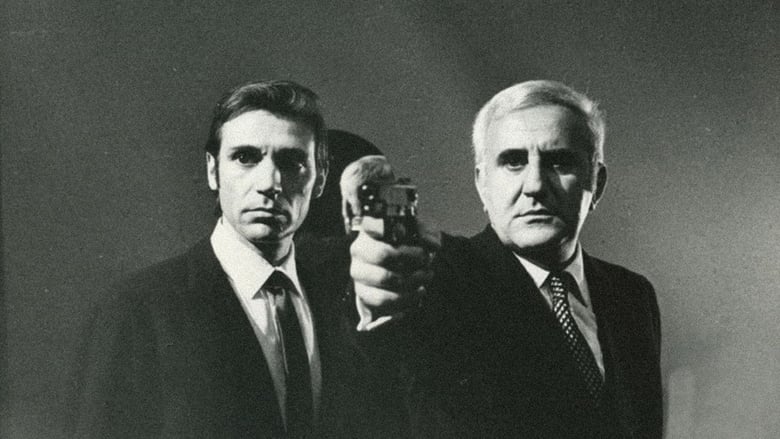
They Have Changed Their Face (1971)
A mid-level automotive company employee is summoned to the mountain villa of owner Giovanni Nosferatu, only to discover a glossy netherworld where capitalism is the new vampirism, and escape may be impossible.
Watch Trailer
Cast
Similar titles

Reviews
Am i the only one who thinks........Average?
This story has more twists and turns than a second-rate soap opera.
The acting in this movie is really good.
Ok... Let's be honest. It cannot be the best movie but is quite enjoyable. The movie has the potential to develop a great plot for future movies
Just like Baba Yaga, Corrado Farina's only other film made for cinema, They Have Changed Their Face is a quasi-horror film which is really a commentary on something else altogether, and although unlike that film there's no animation or boxing matches with Jesus, there's enough weirdness to carry the threadbare plot.Alberto works for an automobile company and is delighted to find that the CEO of the company wants to speak to him. He travels to the top of the building where he discovers that the actual true owner of the company is a Mr Nosferatu (Adolfo Celi), who wishes to have Alberto visit his remote villa in the mountains. Alberto hasn't read Bram Stoker's Dracula and thinks there's nothing creepy about that at all.Things do start getting creepy when the guy and the petrol station runs off when he asks for directions to the villa, and no one will speak to him in the village except a travelling hippy chick who is swanning around the place looking for a lift to somewhere more interesting. Alberto obliges, probably because he's a nice guy and probably not because this chick is walking around with her boobs hanging out. She gives him the usual 'living free/non-conformist' jive these hippies like to bore people with, and then starts putting the moves on him, but Alberto is determined to see his boss. Laura (the hippy) elects to wait in the car for him while he makes his way up to one of the stranger villas to appear in Italian cinema. For starters, he's escorted to this house by two silent men driving tiny white cars. He's then ushered into the building by a very pale, tall woman who is Mr Nosferatu's secretary. She informs Alberto that Mr Nosferatu doesn't entertain visitors until the evening but in the meantime Alberto is free to relax and have a drink. Alberto (and the audience) quickly find out that the real purpose of the plot is for director Farina to make some sort of comment on the symbiotic relationship between consumer and the big corporations who offer us every product we desire. This is done subtly when Alberto's arse makes contact with a couch and an advert about the couch starts blaring from speaks on the wall. This also happens when he uses a certain shower gel and of course a 'Mr Nosferatu' brand johnny to shag Nosferatu's secretary.It becomes clear soon enough that Farina is in piss-take mode as he makes fun of the Dracula story (Nosferatu does have a crypt, for instance, but also likes to shoot targets that yell when he hits one). Alberto is the Jonathan Harker character who tries to escape as things get stranger, but is lured back by the secretary, and of course the promotion of a high-level promotion.The best bit for me was when Nosferatu has a board meeting to discuss the mass-marketing of LSD and is shown three different adverts. One makes fun off Jean Luc-Godard's socio-political style, and best of all there's a Fellini pastiche where a clown plays a trombone in the middle of a field while his mother and father look on. It's nearly, but not quite, as fun as Baba Yaga, this one.I don't know if I haven't to even mention the quality of Adolfo Celi's acting. He seems to pull any character without any effort whatsoever, so even a vampiric corporate fat cat comes across naturally and charming. And that hippy in the car? Farina saves the best joke for last...
After re-watching this obscure Italian gem, I'm even more convinced that Corrado Farina is a true neglected maestro of Italian horror cinema. Granted, he's only made four films, two of them being horror (the other one is the delirious fumetti adaptation "Baba Yaga"), but they really shows a unique style that is hardly seen elsewhere in the genre. In fact, even more so than "Baba Yaga", "Hanno Cambiato Faccia" is something of a black sheep of 70's Italian horror. The most obvious difference is the look of the film. While most of it's kind are photographed with Bavaesque colors, this one is almost completely pale and "lifeless", with all the exterior scenes filmed in nearly deserted, fog-shrouded landscapes and with stark white, minimalist interiors. Corrado's script is also very well written and intelligent. Something of a loose adaptation of Bram Stoker's "Dracula", set in 1970's Italy, we follow a young man who goes to visit his boss - Giovanni Nosferatu, the head of a huge corporation, at his secluded country villa, in order to get a promotion. As soon as he gets there, however, he soon realizes there's something not quite right with Mr. Nosferatu, and he eventually comes to the conclusion that the man is a vampire. Not unlike Hans Geissendorfer's eccentric masterpiece "Jonathan", this is an obvious allegory to capitalism, with corporate tycoons presented as vampires who feed on the expenses of their consumers, and the title means that these foul beings are still living in our modern society, only under a different image. The metaphor is presented very subtly, and doesn't come across as being pretentious. The film's finale, though some can see as being anti-climatic, actually enhances this, and leaves a haunting, lingering impression, rather than a shocking one, on the viewer. One of the film's greatest assets is the contrast between classic Gothic imagery with high-tech, ultra-modern settings. Nosferatu's villa is, on the outside, old and crumbling, surrounded by a foreboding forest and an ancient cemetery. There's also a nearby village with the creepy innkeeper-ish character who warns the protagonist of his destination before he gets there. Hell, there's even a cobwebbed crypt for the vampire to sleep in. Another brilliant aspect is the choice cast. Adolfo Celli is just effortlessly creepy as the undead businessman, and Giuliano Esperanti makes for a likable protagonist in his Jonathan Harker-type role. Argento fans will be surprised to see the androgynous Geraldine Hooper, best known as Gabriele Lavia's homosexual lover in "Deep Red", as Celli's mysterious and seductive secretary, a "Bride of Dracula", if you will. As a whole, I think I slightly prefer "Baba Yaga" over this, but only by a hair, as "They Have Changed Faces" is obviously the better written, better acted of the two. Speaking of which, even if you didn't like "Baba Yaga", I urge you to see this film - it's a highly original, intelligent slice of Italian Horror, and another one that deserves more praise and recognition. 9/10
A largely unknown but highly rewarding Euro-Cult gem that transposes the ancient Transylvanian vampire legend into the commercialized industrial age of 1970s Italy; director Farina is perhaps best-known (if at all) for the Carroll Baker-starring adult comic-strip adaptation BABY YAGA (1973) – a film which I was kind of lukewarm on at first glance but would now love to revisit (for the record, I do own the Blue Underground DVD of it). The mostly anonymous cast is headed by distinguished character actor Adolfo Celi (playing the all-powerful tycoon Giovanni Nosferatu) and whose underlings include one Harker, one Van Helsing, etc.!; the hero of the piece is played by Giuliano Disperati (who reminded me of a less handsome version of Hurd Hatfield) and their female counterparts are essayed by Geraldine Hooper (as Celi's androgynous secretary) and red-headed hottie Francesca Modigliani (portraying a bare-breasted hippy who hitches a ride in Disperati's car and stays on). Obviously, Jean-Luc Godard had already paid similar tribute to F.W. Murnau's Silent vampire masterpiece in his own iconic neo-noir/sci-fi opus ALPHAVILLE (1965) by naming the Howard Vernon character as Professor Nosferatu von Braun; the beauty of Farina's – and co-writer/assistant director/editor Giulio Berruti (who would go on to direct the middling nunsploitation/slasher KILLER NUN [1978]) – concept, however, is that (as the film's very title implies) vampires have nowadays changed their faces and instead of sporting bloodied fangs and enveloping cloaks, they don suits, haunt business boardrooms and prey upon millions of gullible TV viewers via puerile (but obviously effective) commercials! The film's initial stages have a deceptively light-hearted air about them: predating the amiable "Fantozzi" comedy series of movies by four years, Disperati cannot believe his luck in being invited to meet the elusive President of the firm he works for (who inhabits the 20th floor on which, apparently, only a handful of people have ever been to); when Disperati is invited to Nosferatu's country house, he is made to listen to commercials whenever he gets to sit on the sofa or take a shower! Even so, the subtle choral music on the soundtrack ominously underscores the sinister air of the rural surroundings – represented by Nosferatu's omnipresent watchdog army of white Fiat 500 which 'accompany' every visitor to the villa. Needless to say, the usual expected elements of vampire movies are also present in the mix here: the crypt housing Nosferatu's decaying coffin; the midnight secret meeting of the Vampire and his acolytes (here made up of, among others, a Renfield-like advertising agent dreading his boss' reaction to his clips and even an ecclesiastical authority who imparts his blessing on the latter's work vis-a-vis censorship issues, etc.). Despite Disperati's apparent shooting of Nosferatu (whose main relaxation activity is taking target practice on moaning puppets!), the eventual climactic defection to the cause – conformism to the consumerist mentality – of both hero and (the sadly largely absent) heroine does not really come as a surprise and concludes the movie on a satisfying ROSEMARY'S BABY-like coda.
Vampires are the real BAD guys (i.e. corporate honchos feeding on much more than blood) in this satirical, quirky outing. Visually stunning, with a main character who goes by the name of Giovanni Nosferatu... not to forget an army of white, man-eating utility cars from hell (just forget wimpy, musty ole bats!)... I mean, how can you go wrong?
